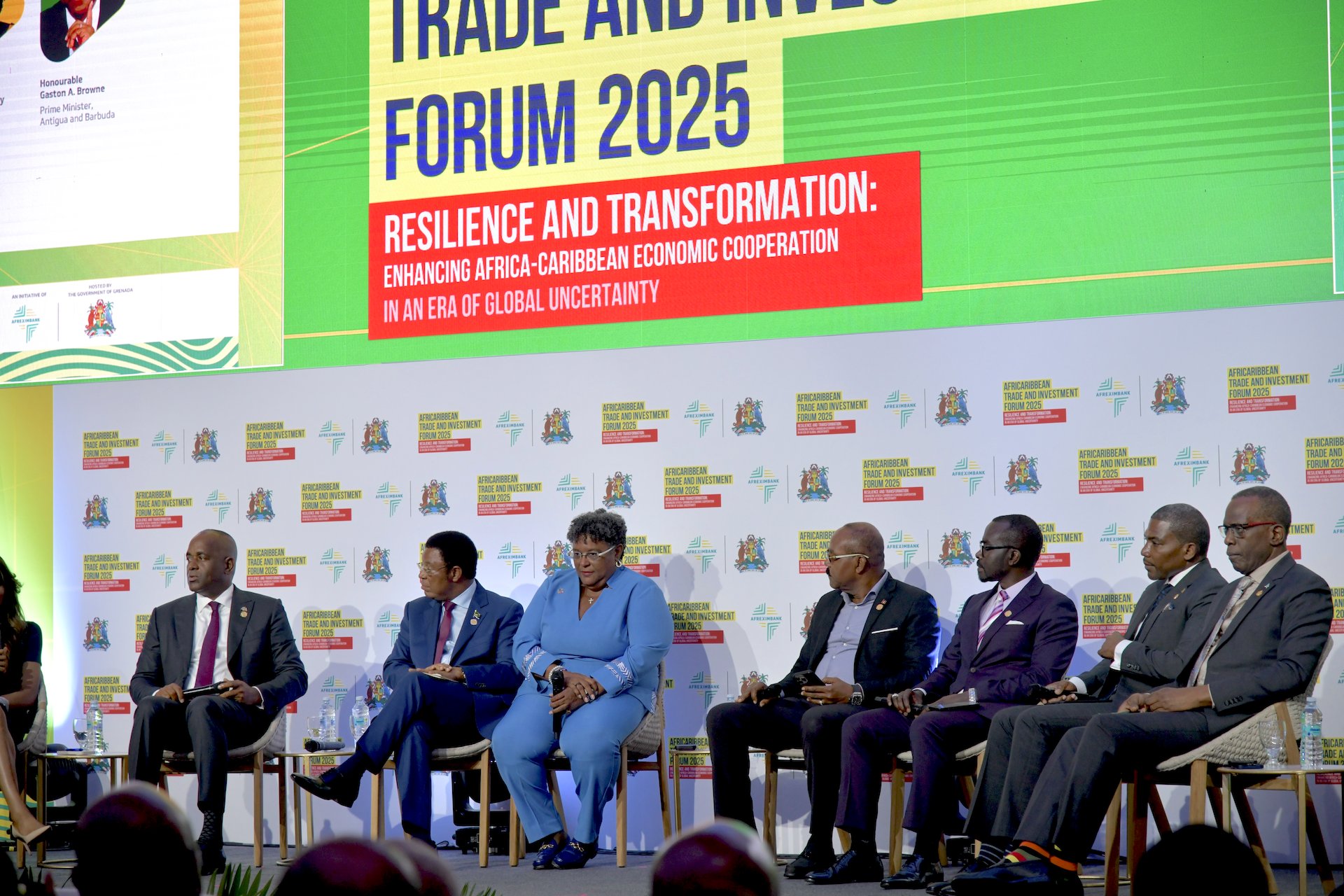Prime Minister Drew Advocates for Visa-Free Travel to Bolster Afri-Caribbean Trade and Investment
The Imperative for Enhanced Africa-Caribbean Cooperation: A New World Order Beckons
The fourth AfriCaribbean Trade and Investment Forum (ACTIF2025), held in St. George’s, Grenada, in July 2025, served as a pivotal platform for Caribbean and African leaders to explore the vast potential for strengthened economic and cultural ties. Convening under the theme “Resilience and Transformation: Enhancing Africa-Caribbean Economic Cooperation in an Era of Global Uncertainty,” the forum underscored the need for a redefined global order that prioritizes collaboration and mutual growth between these two historically interconnected regions. A key highlight of the forum was the Presidential Panel on “New World Order as an Opportunity for Strengthening Africa-Caribbean Trade, Investment, and Cultural Relations.” This high-level discussion brought together esteemed leaders, including Prime Minister Dr. Terrance Drew of Saint Kitts and Nevis, Prime Minister Mia Amor Mottley of Barbados, and representatives from other Caribbean nations and Rwanda, to address the critical issues hindering deeper collaboration and to chart a path forward for a more prosperous future.
Visa Barriers: A Major Impediment to Trade and Investment
Prime Minister Drew’s address to the panel highlighted a significant obstacle to realizing the full potential of Africa-Caribbean cooperation: visa restrictions. He recounted a real-time example of how these barriers directly impact investment opportunities, citing the case of two investors who were unable to attend the forum and finalize a significant investment in Saint Kitts and Nevis due to visa complications. This anecdote powerfully illustrated the tangible consequences of restrictive visa policies on economic development. Prime Minister Drew emphasized that such barriers impede trade, investment, and the free flow of people, which are fundamental to fostering strong economic and cultural ties. He contrasted this with Saint Kitts and Nevis’ open-door policy towards several African nations, including Nigeria, which has facilitated the entry of Nigerian students pursuing medical and diving education. This asymmetry in visa policies, where Caribbean nations often offer greater access to African citizens while facing restrictions in return, underscores the need for reciprocity and a more balanced approach.
The Urgent Need for Reciprocity and Streamlined Visa Processes
The call for visa-free travel between Africa and the Caribbean resonated strongly throughout the forum. Leaders recognized that facilitating the movement of people is crucial for stimulating trade, investment, and cultural exchange. The existing visa requirements create unnecessary bureaucratic hurdles, discourage potential investors, and limit opportunities for businesses and individuals in both regions. Prime Minister Drew’s engagement with high-level officials in Nigeria to address the visa imbalance underscores the commitment to finding practical solutions to this pressing issue. The pursuit of reciprocal visa agreements, or even the complete removal of visa requirements, is seen as essential for unlocking the full potential of Africa-Caribbean partnerships.
Beyond Visas: A Multifaceted Approach to Strengthening Ties
While visa liberalization emerged as a central theme, the discussions at ACTIF2025 encompassed a broader range of strategies for bolstering Africa-Caribbean relations. The forum served as a platform for exploring mutual investment frameworks, promoting reciprocal trade policies, and fostering greater cultural understanding. Participants recognized the interconnectedness of these elements and the importance of a holistic approach to building stronger and more sustainable partnerships. The shared history, cultural affinities, and developmental aspirations of Africa and the Caribbean provide a strong foundation for deeper collaboration. The forum underscored the need to move beyond rhetoric and translate these shared values into concrete actions that deliver tangible benefits for the people of both regions.
ACTIF2025: A Catalyst for Transformative Change
ACTIF2025 served as more than just a forum for discussion; it was a call to action. The event brought together key stakeholders, including government leaders, business representatives, and experts from various fields, to collectively identify challenges, explore opportunities, and forge a path towards greater collaboration. The discussions were frank and open, reflecting a genuine desire to overcome historical barriers and build a future based on mutual respect, shared prosperity, and sustainable development. The forum generated momentum for concrete initiatives and laid the groundwork for future partnerships that promise to reshape the economic and cultural landscape of both regions.
Towards a New Era of Africa-Caribbean Cooperation
The spirit of ACTIF2025 signifies a renewed commitment to strengthening Africa-Caribbean ties. The forum demonstrated the shared recognition of the immense potential for growth and development through enhanced collaboration. The call for visa liberalization, the exploration of mutual investment frameworks, and the emphasis on reciprocal trade policies represent tangible steps towards realizing this potential. As the world navigates an era of global uncertainty, the partnership between Africa and the Caribbean offers a beacon of hope and opportunity. By working together, these two regions can leverage their unique strengths, overcome shared challenges, and build a more prosperous and resilient future for their people. The legacy of ACTIF2025 lies in its ability to catalyze meaningful action and usher in a new era of deeper, more impactful Africa-Caribbean cooperation.
Share this content:












Post Comment